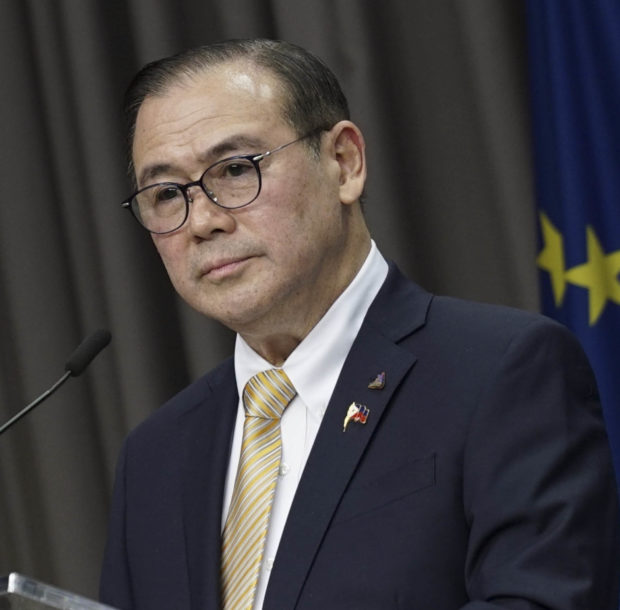DFA probes ‘poor treatment’ of Filipinos in embassy shelter in Syria

Foreign Affairs Secretary Teodoro Locsin Jr. (FILE) PRESIDENTIAL PHOTO
MANILA, Philippines — The Department of Foreign Affairs (DFA) has launched an investigation into allegations that Filipino trafficking victims were treated poorly in the embassy shelter in Syria’s capital.
“The [DFA] has taken these allegations seriously. Certain personnel have been administratively investigated and a human rights lawyer has been deployed to further look into the allegations of poor treatment of Filipino victims while under the temporary shelter and to recommend other necessary actions to be taken,” the department said in a statement Monday.
In a separate tweet, Foreign Affairs Secretary Teodoro Locsin Jr. said he would be meeting with “the handful in the know to get to the bottom of this” on Tuesday.
“[W]hat we know is its root in the human trade in Mindanao. No one will be spared however influential. I will protect our Muslim sisters at all costs,” he added.
This, following a Washington Post report on Filipino women, who were promised work in the United Arab Emirates but were trafficked to Syria, where their employers would physically and sexually abuse them.
The report also cited the accounts of the Filipino victims who said they experienced poor treatment at the shelter in the Philippine Embassy in Damascus when they fled there to get away from their abusive employers.
The DFA, however, said that it is “continuously taking measures to ensure the safety and wellbeing of Filipino victims of trafficking sheltered” at the Filipino Workers Resource Center (FWRC) in the embassy.
The department added that it has also been providing legal assistance to the Filipinos at the shelter, all of whom are either trafficking victims or are facing penalties for being in Syria illegally.
“The DFA, through the Philippine Embassy in Damascus and the Office of the Undersecretary for Migrant Workers’ Affairs, has also been negotiating with the wards’ employers to secure the former’s exit visas,” the department said.
“It has also been working to obtain various clearances for the wards required by the Syrian Government, such as payment of visa fees, residence visa penalty fees, social security clearance fees, and court fees,” it added.
According to the DFA, three of the Filipinos staying in the shelter were repatriated while 12 more are scheduled to return home this month.
“Meanwhile, the wards are able to talk to their families in the Philippines through their own mobile phones and the virtual dialogue organized by the Embassy via Google Meet videoconferencing,” the DFA said.
“The Philippines will always seek to protect all Filipino migrant workers against all forms of exploitation and abuse, especially within the framework of the United Nations’ Global Compact for Safe, Orderly, and Regular Migration (GCM),” it added.